Choke in horse is correctly called an esophageal obstruction and describes the situation where food becomes lodged within the gullet or esophagus. The horse esophagus is a long tubular organ connecting the mouth and the stomach. The horse’s esophagus usually is 49 to 78 inches (4 to 6.5 feet) in length and lies laterally to the left side of the neck. The esophagus starts at the pharynx of the mouth above the trachea or windpipe, travels through the thoracic cavity, and ends at the cardiac splinter of the horse’s stomach.
Causes of Choke in Horse
Choke in horses is one of the most common problems in the esophagus. The other problems in the equine esophagus are esophageal mucosal ulceration, chronic recurrent obstruction, aspiration pneumonia, esophageal perforation, and stricture formation. The common causes of esophageal obstruction in horses are:
- Choke is usually caused by dry feed swelling as saliva combines with it to block the esophagus, inadequately soaked sugar beet is the definitive cause, and the obstruction is made worse by different food that piles up behind the blockage.
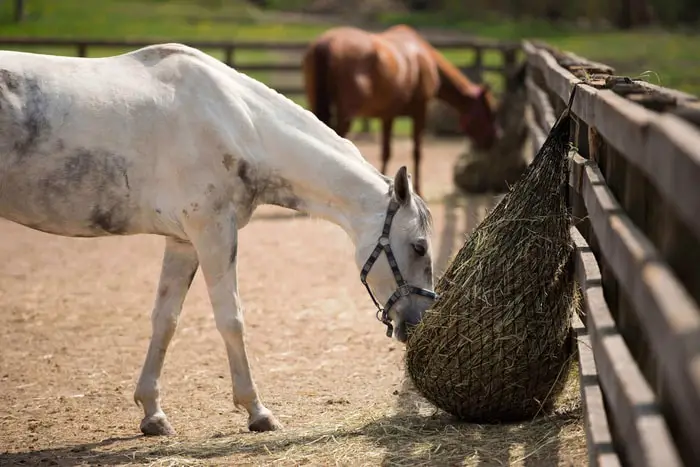
- Other substances that may also cause choking include pieces of fruits or vegetables, chunks of wood, or even shaving.
- An often underestimated reason for equine choke is feeding a horse too soon after they have recovered from sedation or anesthesia, so be patient and give your horse time to wake up before giving them the equine equivalent of tea or biscuits.
- Another potential risk of equine choke is the exhausted horse, so ensure they drink water before they take feed and that all feed is sloppy and easy to swallow.
- If horses have repeat bouts of esophageal obstruction, it is worth looking for a predisposing cause. Once horse feeding problems can be ruled out, it is essential to consider other possible causes:
- Dental difficulties; sharp or worn teeth in older horses and loose or erupting teeth in younger ones.
- Occasionally, some obstruction pressing on the outside of the esophagus can prevent the smooth passage of food. This can include neck injuries that cause swelling, including abscesses such as those associated with strangles and, more usually, tumors.
- Other conditions that cause difficulty swallowing have to be considered. This includes severe conditions such as rabies, which can mimic choke in some world areas.
- Greed: there are certainly horses and ponies who gobble their food and get it stuck but have nothing medically wrong.
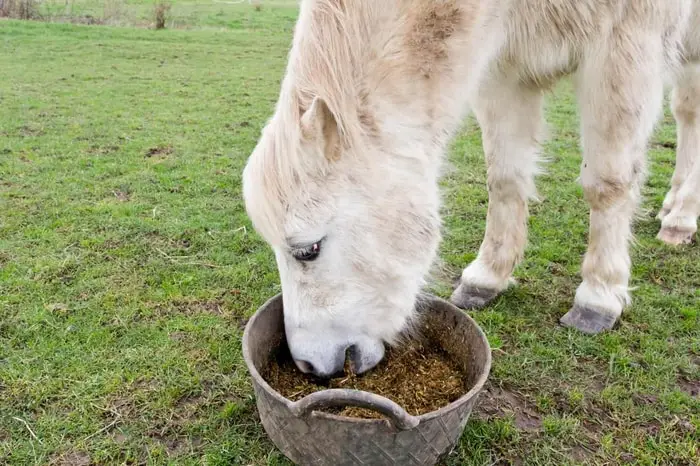
How To Recognize Choke in Horse
Often the signs of equine choke are noticed immediately or soon after the horse has been fed. When a horse has to choke, it is evident that there is something wrong.
- Horses with chokes are depressed and will cough and splutter.
- Sometimes food and saliva are drolling from their mouth and nose as profuse green slime.
- Horses are unable to vomit in the same way as people, but with acute choke, they retch unpleasantly.
- The difficulty in swallowing is due to obstruction.
- Intermittent bending and stretching of the neck to shift the blockage.
- There may be a visible swelling or a lump on the left side of the neck.
- Initially, an affected horse may still eat, even though the food passage is blocked. If the blockage does not shift, they lose their appetite and become dehydrated.
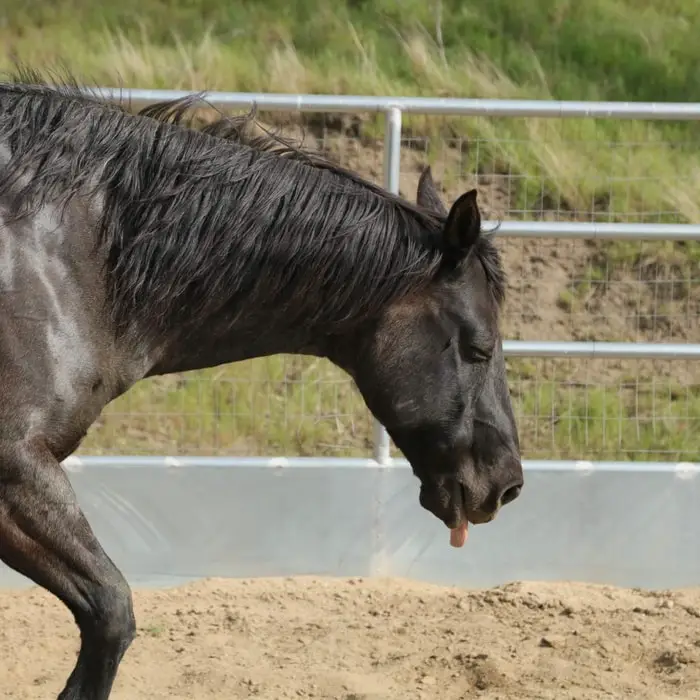
First for Equine Choke: Emergencies For Choke
Choke in horse looks like a dire emergency, but it isn’t! Most cases resolve rapidly without treatment and do not justify veterinarians. However, the risk of complications increases significantly the longer the duration. The most significant risk is the horse inhaling food and saliva and developing pneumonia as a complication. Some aspiration pneumonia is seen in about two-thirds of cases. If the esophageal blockage does not shift within a few hours, you will need veterinary first aid help.
- Restrict the horse to drink or eat further, making him less likely to get food down the whipped.
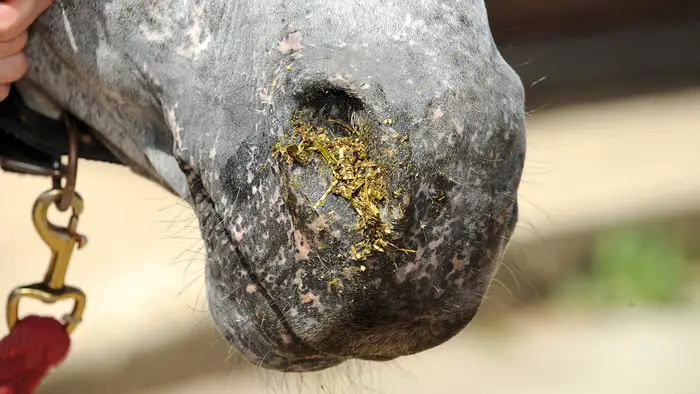
- It is best to put them in a box with no hay or water and with non-edible bedding and then contact your vet for advice.
- By the time you have done so, the obstruction will frequently have cleared.
- Occasionally a lump of chocked food can be felt on the left side of the neck, and massaging this gently may help it disappear.
- Keep the horse quiet with its head low to allow saliva to drain. The vet may give them sedatives to encourage this.
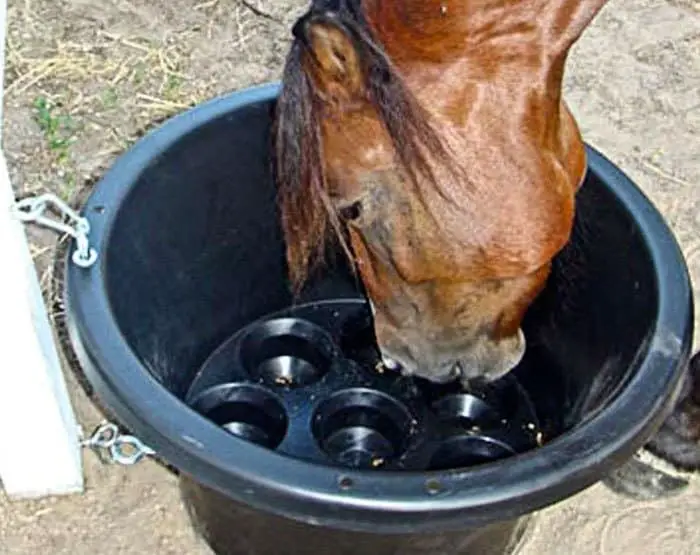
Choke in Horse: What Vet Will Do
The vet’s management of equine choke depends on how long the choke has been going on and how uncomfortable the horse is. The majority will need injections to relax them and allow the obstruction to pass.
- If the choke in the horse persists, the vet may use more aggressive treatment.
- Sometimes a stomach tube is passed up the nose into the esophagus to confirm the site of the obstruction, and fluid may be gently pumped through to soften and shift the blockage.
- Giving a large number of fluids as in intravenous drip will help as the horse can become dehydrated through continually drolling saliva and being unable to drink.
- General anesthesia is needed to shift a blockage on rare occasions, suing various surgical procedures.
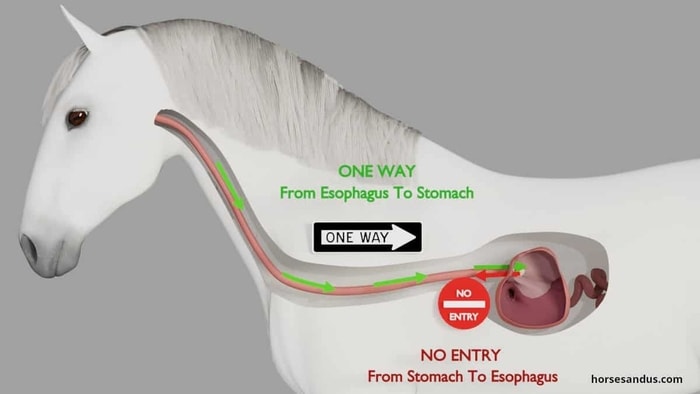
Prognosis of Choke in Horse
The prognosis of equine choke for a complete recovery after one choke episode is good. Withholding dry fibrous horse feed for at least three days can reduce the chance of recurrence or scare at the site of the obstruction. Respiratory infections associated with equine choke will usually rapidly resolve, but many choke cases need antibiotics for a few days.
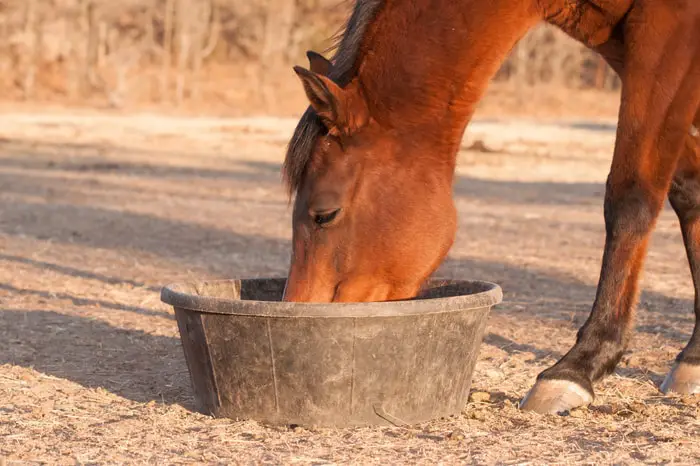
Prevention of Equine Choke
The choke in horses can be prevented in many cases by the following measures:
- Avoid dry feed.
- The horse’s feed is away from others, so they do not rush when they eat because of the fear of another horse snatching their supper.
- Try feeding a smaller amount at a higher frequency so that the horses get the same amount of feed per day as it was previously but in three or four lots.
- Put a giant object that is too large to eat, such as a large stone or rock salt, in the feed bowl so that the horse has to search for their feed and eat more slowly.
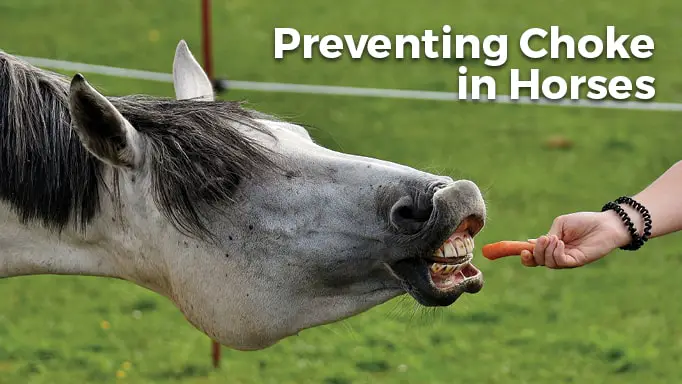
Complications of Choke in Horses
The choke is reduced and healed by medical treatment, management, and even surgical treatments in most cases. The probable complications of choke in horses are:
- Aspiration pneumonia.
- Esophageal stricture.
- Esophageal perforation.
- Chronic recurrent obstruction.
- Esophageal mucosal ulcers.
- Laminitis.
- Post-surgical complications.
- Laryngeal paralysis.
- Horner’s Syndrome.